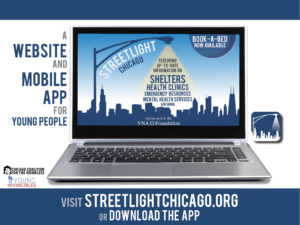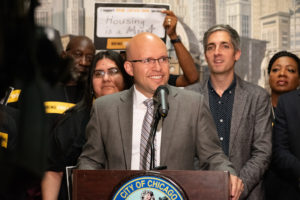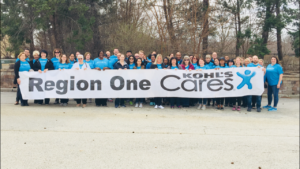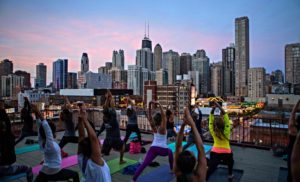Lightfoot’s decision to eliminate funding for homelessness from proposed tax increase on affluent property sales breaches multiple campaign promises
By excluding funding to alleviate homelessness from a plan to raise taxes on property sales in Chicago, Mayor Lori Lightfoot has broken several of the campaign promises that vaulted her into office and raised questions about whether her administration represents the departure from business as usual that she heralded in her bid to run the city, members of the Bring Chicago Home campaign said Tuesday.
Reacting to published reports that Lightfoot intends to seek approval from the Illinois legislature to increase Chicago’s Real Estate Transfer Tax (RETT) on property sales exceeding $1 million and funnel all of the money into the city’s coffers to address a budget shortfall, officials with BCH, a campaign endorsed by more than 70 organizations across the city, said Lightfoot abandoned her promise to use the same revenue source to fund relief for Chicago’s large homeless population.
Chicago Sun-Times, Mark Brown: Homeless advocates ‘deeply disappointed’ by Lightfoot betrayal, shift to ‘business-as-usual’ politics
Meanwhile, by eliminating support for homelessness from her plan without first seeking input from advocates on how she might be able to balance it with the need to shave the city’s budget deficit, Lightfoot strayed from her vow during the campaign to act more collaboratively than her predecessor. Beginning with promises made on the campaign trail, Lightfoot has repeatedly committed to pledge money generated from a RETT increase to fund programs that reduce homelessness.
“The Mayor has not only blatantly abandoned her campaign promise, but also the style of governing that she claimed she would usher into office,” said Doug Schenkelberg, Executive Director of the Chicago Coalition for the Homeless (CCH), a member of BCH. “Last month she claimed she would work with us to achieve our common goal, but she made no effort to collaborate with us before deciding within weeks to withdraw her support and cut those experiencing homelessness from her plans. We need this Mayor to restore her commitment to creating a robust and dedicated funding stream to combat homelessness. Otherwise, she’s deserting an already marginalized population who exemplify the kind of Chicagoans she vowed to champion. And that’s just a prescription for business-as-usual in Chicago.”
While Lightfoot had said that Chicago’s burgeoning budget deficit is larger than her predecessor Rahm Emanuel had disclosed, Schenkelberg noted the city has been plagued by a structural imbalance between revenues and debt that predated the Mayoral campaign and shouldn’t absolve Lightfoot from promises she made in the context of the fiscal dilemma.
Backed by 31 aldermen who have publicly expressed support for its proposal during the current Mayoral administration, the BCH campaign has championed a pending resolution in City Council that would increase the RETT on property sales exceeding $1 million to fund reductions in homelessness and an expansion in the city’s woeful scarcity of affordable housing. That measure closely paralleled the plan that Lightfoot had advocated during her campaign.
Under the legislation, more than 94 percent of all property sales in Chicago would be exempt from a proposed increase in the city’s Real Estate Transfer Tax (RETT), closely echoing a concept that Lightfoot, herself, repeatedly prescribed during her campaign for Mayor.
In a June letter addressed to Lightfoot, aldermen who characterized themselves as “strong supporters of a solution to dramatically reduce homelessness in Chicago” asked the Mayor to back the proposal, which would fund services and housing opportunities benefiting the more than 86,000 city residents experiencing homelessness.
“We understand that you are balancing many priorities, but your shared interest in reducing homelessness gives us hope that a plan that would finally achieve this long-sought goal is within reach,” the aldermanic letter stated.
If adopted into law, the measure will remedy a gross shortage of funds that Chicago assigns to combatting homelessness. Its current $15.5 million annual expenditure relief ranks near the bottom of the 10 U.S. cities with the largest homeless populations.





